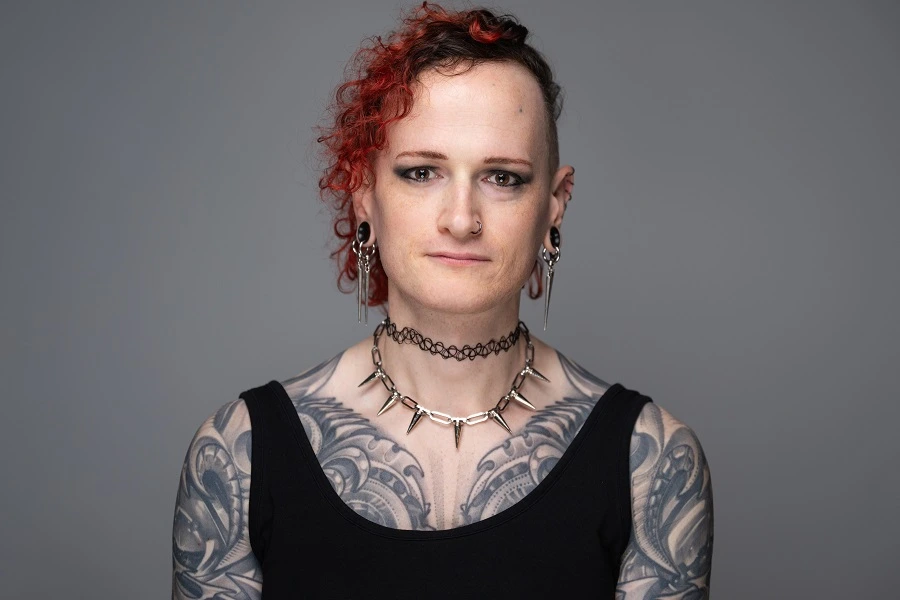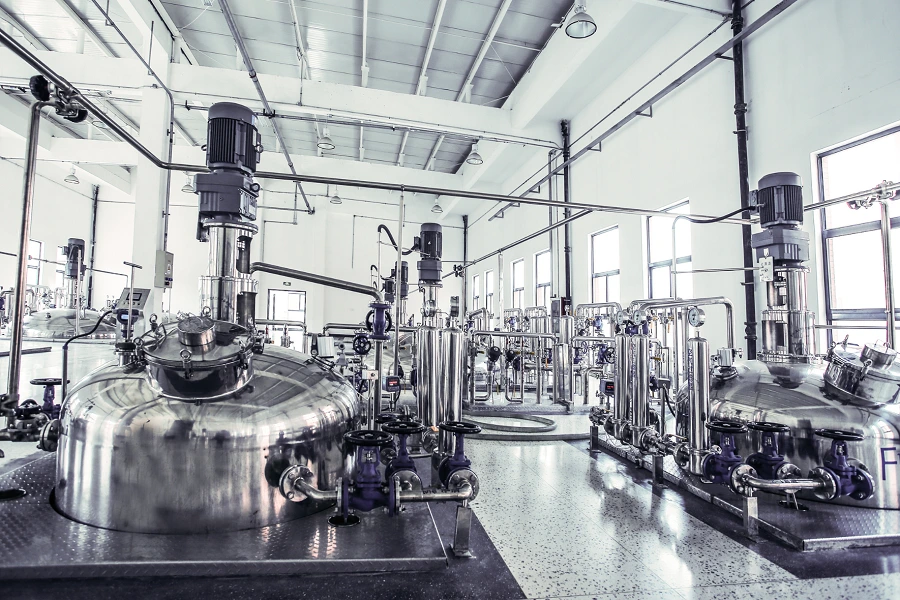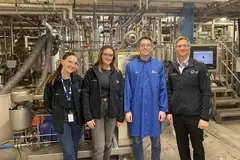
- Industry news
Industry news
- Category news
Category news
- Reports
- Key trends
- Multimedia
- Journal
- Events
- Suppliers
- Home
- Industry news
Industry news
- Category news
Category news
- Reports
- Key trends
- Multimedia
- Events
- Suppliers
New Wave Biotech and CPI collaboration unlocks “hybrid AI” to tackle lipid extraction challenges
Key takeaways
- New Wave Biotech has partnered with the Center for Process Innovation to tackle lipid extraction challenges in foods by using hybrid AI-powered simulations.
- The collaboration combines mechanistic modeling and machine learning to predict extraction process performance for faster and more reliable scaling and process optimization.
- The project aims to validate the AI technology and optimize lipid extraction techniques, aiming to help bioproducers scale faster and more sustainably.
UK-based New Wave Biotech has partnered with the Center for Process Innovation (CPI) to tackle the long-standing lipid extraction challenges in the F&B industry. The companies will leverage hybrid AI-powered downstream processes simulation to improve the sustainability and commercial viability of solvent and non-solvent lipid extraction techniques.
Lipid extraction is an important processing method for obtaining the lipid ingredients used to formulate chocolates and bakery products. However, manufacturers often face challenges due to the toxic and flammable chemicals in solvent-based processes used for lipid extraction.
Non-solvent methods are deemed safer and cleaner, but are costly and inconsistent. This slows the scaling of sustainable alternatives to palm oil, cocoa butter, and animal fat replacements.
Food Ingredients First speaks with Nix Hall, co-founder and chief technology officer of New Wave Biotech, to understand how exactly the firm uses AI to overcome lipid extraction challenges and how close the method is to real-world applications.
“Lipid extraction is a huge challenge as lipids rarely form in isolation. Extracting them results in a complex mixture of different substances from which the lipid must be purified,” Hall tells us.
“Lipids also often form emulsions during this process, which are complex to break to extract the product at sufficient yield and purity. The dynamics of this are hugely dependent on the particular lipid being produced, as well as the biological production process — even different strains of the same organism can produce massively different results during cell disruption, for example, or produce emulsions with completely different dynamics.”
Overcoming lipid extraction trade-offs
While various techniques can be used to purify lipids from these complex mixtures and emulsions, Hall says each has a trade-off.
“Solvent extraction is effective, but complex, and involves hazardous, sometimes expensive and unsustainable solvents.”
“Because each process can produce such different mixtures or emulsions, the techniques that are most effective also vary, and will be likewise affected by the intended final use case — is it for a food application, cosmetics, or pharma? What is the target market? What price point needs to be reached? Is sustainability a key factor in production?” she adds.
New Wave Biotech will tackle these challenges by providing CPI — the UK’s national translational research and innovation organization — which can analyze the performance, cost, and sustainability trade-offs directly by running “thousands of in-silico simulations” to cut trial-and-error and help clients scale faster, notes the firm.
 Combining mechanistic modeling and machine learning can help predict process performance with just one or two experiments’ worth of data, says Nix Hall, co-founder of New Wave Biotech.
Combining mechanistic modeling and machine learning can help predict process performance with just one or two experiments’ worth of data, says Nix Hall, co-founder of New Wave Biotech.
How does it work?
New Wave Biotech’s hybrid AI-powered simulation enhances lipids extraction by “combining the best of mechanistic and machine learning approaches,” Hall explains.
“Mechanistic modeling can capture the fundamental physical and chemical dynamics, but falls when complex biological interactions come into play. A pure machine learning approach can capture these often unknown dynamics and predict them, but requires vast amounts of experimental data to train upon, which is hugely expensive and slow to capture.”
By combining the two approaches, the tools can complement the other. The mechanistic models support the targeted machine learning to “capture complex or unknown dynamics” with small amounts of experimental data, adds Hall.
“What this amounts to is being able to very accurately predict process performance with just one or two experiments’ worth of data, and then using computational modeling to perform tens of thousands of in-silico tests to compare different process options and optimize for performance, cost, and sustainability.”
Hall emphasizes that this allows teams to identify the most viable extraction strategies quickly, and focus lab work “only where it matters,” and choose the process options that suit them best.
Lab to industry transition
As part of this collaboration, CPI will offer its expertise in process development and optimization, along with extensive facilities and equipment.
“This allows us to take real-world processes, test them empirically, and demonstrate how our platform can both accurately model and also optimize these processes, with feedback and insight from CPI’s experts in downstream development,” says Hall.
CPI is also a key partner for many organizations looking to develop and optimize their processes and for scale-up.
The partnership allows CPI to experience how New Wave Biotech’s tool can help reduce trial-and-error experimentation and accelerate scale-up. Leveraging its “in-silico modeling,” it can help more bioproducers scale faster and more reliably at lower cost.
 The project will also extend to intracellular bioprocesses to explore how digital-first methods can improve scalability across multiple applications.
The project will also extend to intracellular bioprocesses to explore how digital-first methods can improve scalability across multiple applications.
Next steps
The project will focus on proving New Wave Biotech’s approach and developing the specific capabilities required for modelling and optimizing lipid extraction.
“Because lipid extraction is so bespoke to each use case, there won’t necessarily be a single optimal solution applicable to all use cases. However, gaining validation of the technology and approach will give CPI and manufacturers the confidence to commit to this in the future.”
“We are already in discussions with various manufacturers who are highly interested in optimizing lipid extraction, and this project will prove a valuable stepping stone to applying these techniques to real-world applications,” Hall adds.
Beyond the technology’s “immediate validation,” New Wave Biotech aims to optimize real-world lipid extraction use cases by partnering with CPI and other users.
“Our mission is to enable bioproducers to scale faster, more sustainably, and at lower cost, and the more proof we have of our technology, the more others can see the benefits of scaling this way,” Hall concludes.












